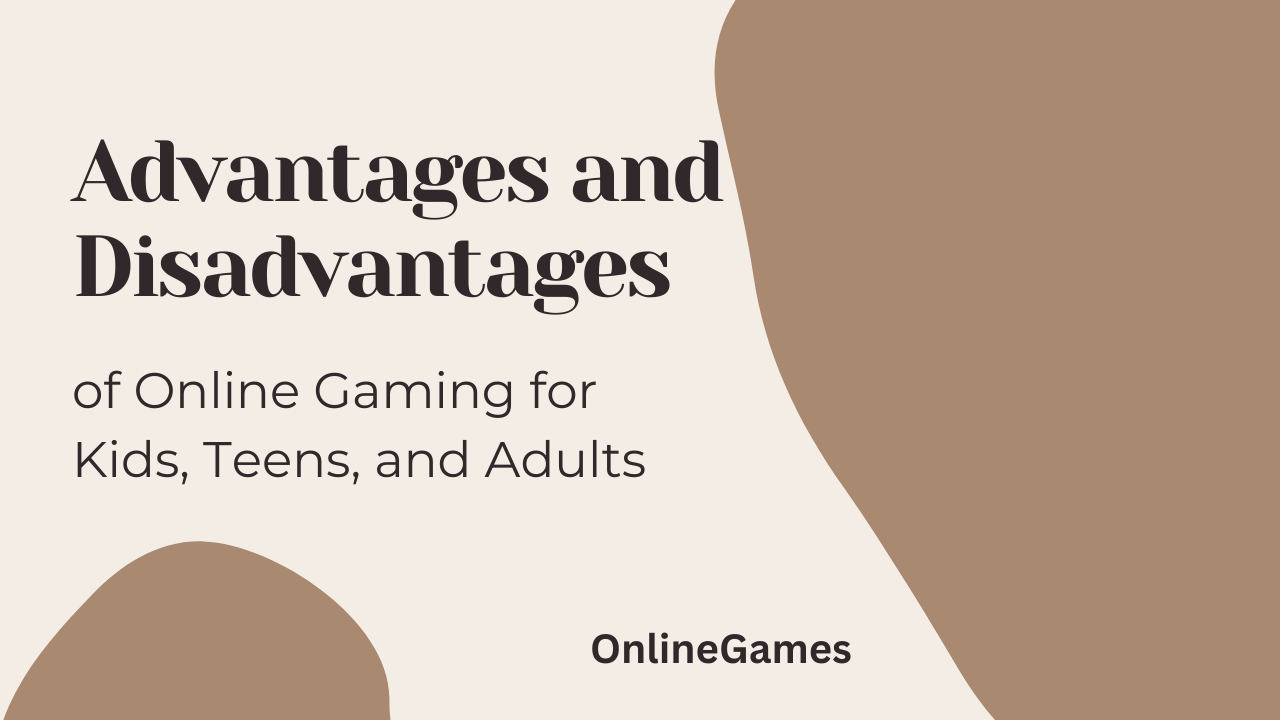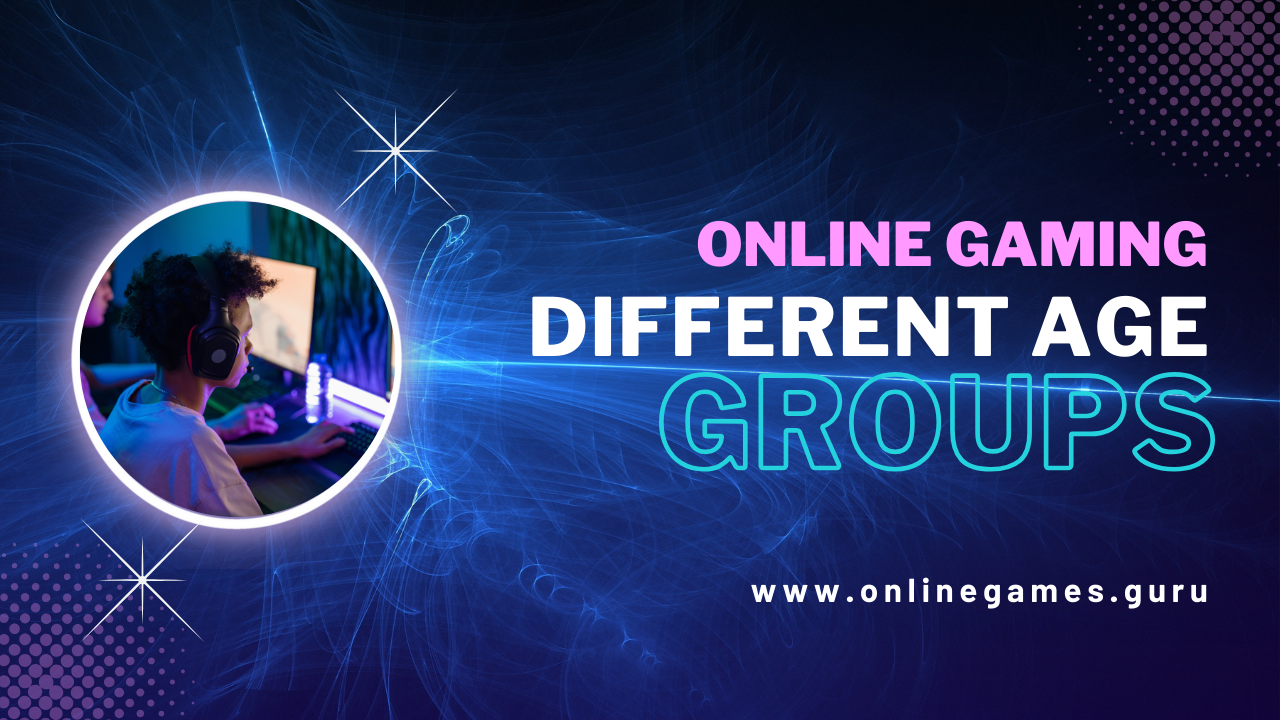Online games are video games that are played over the internet. Unlike traditional video games, which are played offline and alone or with friends on the same console, online games involve interacting with other players or connecting to game servers remotely. They can be played on various devices such as computers, gaming consoles, and mobile phones, offering a vast array of genres and experiences.
Brief History and Evolution
The history of online games dates back to the 1970s when early multiplayer games were played on mainframe computers connected by local networks. The advent of the internet in the 1990s revolutionized gaming, enabling global multiplayer experiences. Iconic games like “World of Warcraft” and “Counter-Strike” set the stage for modern online gaming, evolving into sophisticated platforms with millions of players worldwide.
Importance in Modern Society
Online games have become a significant cultural and economic force. They provide entertainment, foster social connections, and even serve as educational tools. The gaming industry generates billions of dollars annually, influencing technology development and creating numerous job opportunities. In today’s digital age, online gaming is more than a pastime—it’s an integral part of modern life.
Overview of Online Game Genres
Online games span various genres, each offering unique gameplay experiences:
- MMORPGs: Massive worlds where players role-play and embark on quests.
- FPS: Fast-paced games that emphasize shooting mechanics.
- MOBA: Strategic games focusing on team-based combat.
- Casual Games: Easy-to-play games suitable for short sessions.
- Simulation Games: Realistic games that simulate real-world activities.
- Sports Games: Games that replicate sports activities.
- Puzzle Games: Games that challenge the player’s problem-solving skills.
2. Types and Categories of Online Games
MMORPGs (Massively Multiplayer Online Role-Playing Games)
Definition and Examples
MMORPGs are online games where thousands of players interact in a virtual world. Players assume the roles of characters in a fantasy or science fiction setting, completing quests and battling enemies. Examples include “World of Warcraft” and “Final Fantasy XIV.”
Popular MMORPG Titles
- “World of Warcraft”: A fantasy-themed game with an expansive world and rich lore.
- “Final Fantasy XIV”: A game set in the Final Fantasy universe, known for its story-driven content.
- “Elder Scrolls Online”: An MMORPG set in the Elder Scrolls universe.
FPS (First-Person Shooters)
Definition and Examples
FPS games are characterized by a first-person perspective and shooting mechanics. Players engage in fast-paced combat against other players or AI opponents. Examples include “Call of Duty” and “Counter-Strike.”
Popular FPS Titles
- “Call of Duty”: A military-themed FPS with various game modes.
- “Counter-Strike”: A team-based game that emphasizes strategy and skill.
- “Overwatch”: A team-based shooter with unique characters and abilities.
MOBA (Multiplayer Online Battle Arena)
Definition and Examples
MOBA games involve two teams competing to destroy the other’s base. Players control unique characters, each with distinct abilities. Examples include “League of Legends” and “Dota 2.”
Popular MOBA Titles
- “League of Legends”: A game known for its competitive scene and diverse champions.
- “Dota 2”: A game that features deep mechanics and a steep learning curve.
- “Smite”: A third-person MOBA with mythological characters.
Strategy Games
Definition and Examples
Strategy games require players to plan and execute tactics to achieve objectives. They can be turn-based or real-time. Examples include “StarCraft” and “Civilization.”
Popular Strategy Titles
- “StarCraft”: A real-time strategy game set in a sci-fi universe.
- “Civilization”: A turn-based game where players build and expand empires.
- “Age of Empires”: A game that involves historical battles and empire building.
Casual Games
Definition and Examples
Casual games are simple and easy to play, often with shorter gameplay sessions. They appeal to a broad audience and include games like “Candy Crush” and “FarmVille.”
Popular Casual Titles
- “Candy Crush”: A match-three puzzle game.
- “FarmVille”: A farming simulation game.
- “Angry Birds”: A physics-based puzzle game.
Simulation Games
Definition and Examples
Simulation games mimic real-world activities, providing a realistic experience. Examples include “The Sims” and “SimCity.”
Popular Simulation Titles
- “The Sims”: A life simulation game where players create and manage virtual people.
- “SimCity”: A city-building game where players develop and manage cities.
- “Flight Simulator”: A game that simulates flying aircraft.
Sports Games
Definition and Examples
Sports games replicate real-world sports, allowing players to control teams and athletes. Examples include “FIFA” and “NBA 2K.”
Popular Sports Titles
- “FIFA”: A soccer game that simulates real matches and leagues.
- “NBA 2K”: A basketball game with realistic gameplay.
- “Madden NFL”: An American football game that features real teams and players.
Puzzle Games
Definition and Examples
Puzzle games challenge players to solve problems through logic and pattern recognition. Examples include “Tetris” and “Portal.”
Popular Puzzle Titles
- “Tetris”: A tile-matching game that requires quick thinking.
- “Portal”: A puzzle-platform game that involves solving physics-based challenges.
- “Sudoku”: A number-based puzzle game that involves filling a grid.
3. Key Components of Online Games
Graphics and Visuals
Graphics in online games range from simple 2D designs to complex 3D environments. High-quality visuals enhance the immersive experience, bringing virtual worlds to life with detailed textures, realistic lighting, and dynamic animations.
Gameplay Mechanics
Gameplay mechanics define how players interact with the game. This includes controls, game rules, and feedback systems. Mechanics vary across genres but are crucial for engaging and maintaining player interest.
Storyline and Narrative
Many online games feature rich storylines that provide context and motivation for gameplay. Narratives can be linear or branching, with player choices influencing outcomes. A compelling story enhances player immersion and emotional investment.
Multiplayer Functionality
Multiplayer functionality allows players to interact and compete with others online. This can include cooperative gameplay, competitive matches, and massive multiplayer experiences. Multiplayer features foster community and enhance replayability.
In-Game Economy
The in-game economy involves virtual currencies, items, and resources that players can earn, trade, or purchase. This economy adds depth to the game, providing goals and incentives for players. Microtransactions are a common feature, allowing players to buy in-game content.
4. The Social Aspect of Online Games
Community Building
Online games often have dedicated communities where players can discuss strategies, share experiences, and form friendships. These communities can be found on forums, social media, and in-game guilds or clans, providing a sense of belonging and camaraderie.
Social Interaction and Networking
Games facilitate social interaction through chat systems, voice communication, and in-game events. Players can network with others from around the world, forming social connections that extend beyond the game.
Online Competitions and Tournaments
Many online games host competitions and tournaments where players can compete for prizes and recognition. These events range from casual matches to professional eSports tournaments, offering a platform for players to showcase their skills.
5. Psychological Impact of Online Games
Cognitive Benefits
Online games can enhance cognitive skills such as problem-solving, spatial awareness, and strategic thinking. Games that require quick reflexes and decision-making can improve hand-eye coordination and reaction times.
Potential Addictive Behaviors
While online games offer many benefits, they can also lead to addictive behaviours. Excessive gaming can interfere with daily life, leading to negative consequences such as poor academic performance, social isolation, and health issues.
Emotional and Social Development
Games can influence emotional and social development, providing a safe space for self-expression and experimentation. They can help players develop empathy, teamwork, and communication skills through collaborative and competitive interactions.
6. Economic Impact of Online Games
In-Game Purchases and Microtransactions
In-game purchases and microtransactions are a significant revenue source for game developers. Players can buy virtual items, skins, and other content, enhancing their gaming experience and supporting the game’s ongoing development.
Online Game Market Revenue
The online gaming industry generates substantial revenue, with market projections exceeding hundreds of billions of dollars. This includes sales from games, in-game purchases, and subscriptions. The industry’s growth continues to drive economic opportunities and technological advancements.
Employment Opportunities in the Gaming Industry
The gaming industry provides numerous job opportunities, including game design, programming, marketing, and community management. It also supports ancillary industries such as hardware manufacturing, esports, and content creation.
7. The Technological Backbone of Online Games
Game Engines
Game engines are software frameworks used to create and develop games. Popular engines like Unity and Unreal Engine offer tools for designing graphics, physics, and gameplay mechanics, enabling developers to build complex online games.
Server Infrastructure
Server infrastructure is critical for online games, ensuring smooth gameplay and low latency. Servers handle player connections, data synchronization, and in-game interactions, providing a seamless experience across various regions.
Cross-Platform Compatibility
Cross-platform compatibility allows players to access games from different devices, such as PCs, consoles, and mobile phones. This feature increases the player base and ensures a unified gaming experience regardless of the device.
Virtual Reality and Augmented Reality
Virtual reality (VR) and augmented reality (AR) are emerging technologies in online gaming. VR provides an immersive experience by simulating a 3D environment, while AR overlays digital content onto the real world, enhancing gameplay with interactive elements.
8. Popular Online Game Platforms
PC Gaming
PC gaming offers a wide range of games with high-performance capabilities. PCs provide flexibility in hardware upgrades and customization, making them a popular choice for serious gamers and developers.
Console Gaming
Console gaming involves dedicated gaming devices such as PlayStation, Xbox, and Nintendo Switch. Consoles offer exclusive titles, ease of use, and a consistent gaming experience, appealing to a broad audience.
Mobile Gaming
Mobile gaming has grown rapidly, with smartphones and tablets providing access to a vast library of games. Mobile games are often free-to-play, with revenue generated through ads and in-app purchases, making them accessible and popular among casual gamers.
Cloud Gaming
Cloud gaming allows players to stream games over the internet, eliminating the need for high-end hardware. Services like Google Stadia and NVIDIA GeForce NOW offer instant access to a vast game library, providing flexibility and convenience for gamers.
9. Security and Privacy in Online Games
Common Security Threats
Online games face various security threats, including hacking, phishing, and malware. These threats can lead to account theft, data breaches, and financial loss, posing significant risks to players and developers.
Measures to Ensure Safe Gaming
To ensure safe gaming, players should use strong passwords, enable two-factor authentication, and avoid sharing personal information. Developers must implement robust security measures, such as encryption and regular updates, to protect user data and prevent breaches.
Data Privacy Concerns
Data privacy is a critical issue in online gaming, as games often collect personal information and behavioural data. Players should be aware of the data collected and how it is used, and developers must comply with privacy regulations to protect user rights.
10. Legal and Ethical Issues in Online Gaming
Intellectual Property Rights
Intellectual property rights protect game content, including code, artwork, and music. Unauthorized use or distribution of game assets can lead to legal disputes, making it essential for developers to secure and enforce their intellectual property rights.
Online Harassment and Bullying
Online gaming can be a platform for harassment and bullying, affecting player well-being and community health. Developers and communities must establish and enforce codes of conduct, providing reporting mechanisms and support for affected players.
Ethical Game Design
Ethical game design involves creating games that promote positive behaviour and avoid exploiting players. This includes fair monetization practices, transparency in-game mechanics, and consideration of player well-being in game design.
11. Future Trends in Online Gaming
Growth of eSports
eSports, or competitive gaming, has grown into a major industry with professional leagues, tournaments, and significant prize pools. The popularity of eSports continues to rise, attracting investment and mainstream recognition.
Advances in AI and Machine Learning
AI and machine learning are transforming online gaming, enhancing NPC behaviour, personalizing gameplay, and improving anti-cheat systems. These technologies provide more dynamic and engaging gaming experiences.
Integration of Blockchain Technology
Blockchain technology offers new possibilities for online gaming, including decentralized game economies, player-owned assets, and transparent transaction systems. This integration promises to revolutionize game ownership and monetization.
The Metaverse and Its Impact
The metaverse is a virtual shared space that integrates various online games and digital experiences. It enables seamless interaction across games and platforms, creating new opportunities for social engagement and economic activity in the virtual world.
12. How to Get Started with Online Gaming
Choosing the Right Platform
Selecting the right platform depends on personal preferences, budget, and gaming goals. Options include PCs, consoles, and mobile devices, each offering unique benefits and game libraries.
Understanding Game Ratings
Game ratings provide information on the content and suitability of games for different age groups. Players should review ratings to ensure games are appropriate for their age and preferences.
Setting Up a Gaming Account
Creating a gaming account involves choosing a username, setting a password, and providing the necessary information. Players should enable security features such as two-factor authentication to protect their accounts.
Tips for Beginners
Beginners should start with easy-to-play games, join supportive communities, and gradually explore more complex games. It’s important to manage gaming time effectively and prioritize balance between gaming and other activities.
13. Frequently Asked Questions (FAQs)
What Are Online Games?
Online games are video games that are played over the internet, allowing players to interact with others and access game content remotely.
How Do Online Games Work?
Online games connect players to game servers via the internet, enabling multiplayer interactions, data synchronization, and access to game updates and content.
Are Online Games Safe for Children?
With proper supervision and safe gaming practices, online games can be safe for children. Parents should monitor game content, set time limits, and ensure privacy settings are enabled.
Can Playing Online Games Be Beneficial?
Yes, playing online games can offer cognitive benefits, social interaction, and stress relief. They can also enhance problem-solving skills and hand-eye coordination.










